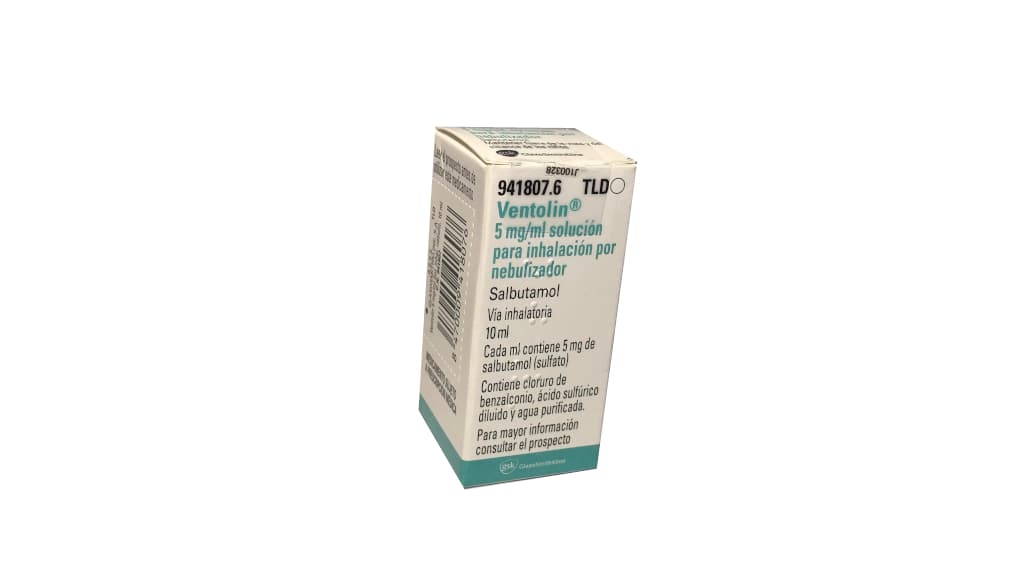Ventolin: Usage, Side Effects, Precautions And More
Ventolin belongs to a group of drugs called short-acting bronchodilators.
Fast-acting bronchodilators relax the muscles in the walls of the small airways in the lungs within a few minutes.
This facilitates the opening of the airways and helps relieve chest tightness, shortness of breath, and coughing so you can breathe more easily.
Ventolin is used to treat severe bronchospasm (closing of the airways in the lungs) associated with asthma attacks and other conditions associated with reversible obstruction of the airways.
It can also be used to relieve symptoms of asthma and chronic obstructive pulmonary disease (COPD), such as coughing, wheezing and feeling short of breath.
These are a group of lung diseases that cause inflammation of the airways leading to obstruction of airflow in the lungs.
It is usually given to people who have suffered enough from these conditions when other forms of treatment have not provided adequate relief.
Ventolin solution for nebulizer inhalation is indicated in adults, adolescents and children 4 to 11 years old.
Consult your doctor for infants and children under 4 years old.

What Will We Learn?
How To Use Ventolin?
This solution is used only as often as prescribed by the doctor.
It should be used a maximum of 4 times a day (regardless of whether you take 1 or 2 puffs at a time), unless the doctor tells you otherwise.
This medication is sometimes used to prevent respiratory symptoms that occurred in the first place.
These situations can happen before a trigger, such as exercise or exposure to pets.
In such cases, continue to take the normal dose (1 or 2 breaths at a time).
This solution should only be used by inhalation using a nebulizer.
Should not be injected or swallowed.
If your breathing or shortness of breath starts to worsen after taking the medicine, stop using the medicine immediately and tell your doctor as soon as possible.
Ask your doctor to show you how to use the medicine.
Precautions While Using Ventolin Nebulizer Solution
Do not use ventolin nebulizer solution in the situations listed below:
- If you are allergic to salbutamol or any of the other ingredients of this drug
Before using Ventolin, you should tell your doctor or pharmacist if:
- If you have had to stop using this medicine or any other medicine for the treatment of this illness because of an allergy or other problem
- have problems with high blood pressure
- If you have hyperthyroidism (overactive thyroid gland)
- If you have a history of heart problems such as fast or irregular heartbeat or angina (chest pain)
- If you have low potassium levels in your blood
- If you are taking xanthine derivatives (such as theophylline) or steroids to treat asthma
- If you are taking diuretics sometimes used to treat high blood pressure or heart problems
- If you have diabetes
- If you are taking other medicines used to relieve nasal congestion (such as ephedrine or pseudoephedrine) or other medicines used to treat asthma
If you think you may have any of these problems, consult your doctor.
Your doctor will monitor your potassium levels, especially if you are taking xanthine derivatives, steroids or diuretics.
High doses of this medicine can very rarely cause a condition known as lactic acidosis.
You should watch out for certain symptoms while taking this medicine to reduce the risk of any problems.
This medicine contains salbutamol, which may cause a positive result in doping control tests.
If the relief of shortness of breath or chest tightness is not as good as usual, or if the duration of action is not as long as usual, tell your doctor as soon as possible. Your respiratory condition may start to worsen and you may need other medicines.
Concomitant Use With Other Drugs
Tell your doctor or pharmacist that you are taking any other medicines (eg, treatments to eliminate fluids, any other bronchodilator tablets, steroids), including those bought without a prescription.
Some medicines can affect the way Ventolin works or increase your chance of having side effects.
These drugs include:
- Non-selective β-blockers, such as propranolol, used to treat high blood pressure or heart problems.
- Monoamine oxidase inhibitors (MAOIs) used to treat depression.
Your doctor or pharmacist will decide whether you can use Ventolin with these drugs.
Pregnancy And Breastfeeding
This medicine is not normally recommended for use during pregnancy.
If you are pregnant or breastfeeding or think you may be pregnant or are planning to have a baby, talk to your doctor or pharmacist before using this medicine.
The doctor will evaluate the benefit of treatment with this medicine for you and the risk for the baby.
Salbutamol, the component in the medicine, is likely to pass into breast milk, so you should consult your doctor before using this medicine if you are breastfeeding.
Side Effects Of Ventolin
Most people taking this drug do not have any problems.
Like all medicines, this medicine can cause side effects, although not everyone gets it.
Some people may be allergic to drugs.
If you experience any of the following symptoms immediately after using this medicine, stop treatment and tell your doctor as soon as possible:
- Sudden onset of wheezing or chest tightness
- Swelling of the eyelids, face, or lips
- Skin rash (hives) or hives anywhere on the body
- Sudden feeling of weakness or lightheadedness (may cause collapse or loss of consciousness)
- Rapid breathing, shortness of breath even if wheezing improves
- Feeling cold
- Stomach pain, nausea and vomiting.
The side effects listed above are not a complete list. If you experience any negative side effects from the use of this medicine, talk to your doctor immediately.
Our article on verhistine tablets used in the treatment of Ménière’s disease may also attract your attention.
